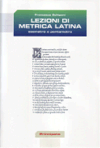Quali sono i setti concetti chiave del metodo New Fluency?
1) Comprehensible input: acquisisci una lingua solo quando comprendi i messaggi
2) Repetition: ripeti almeno per sette giorni consecutivi
3) Silent period: evita di parlare (fidati, riguardo a questo punto: valuterai da solo quando inizierai a parlare)
4) Listening: ascolta
5) Subtitles: limita al minimo l'uso dei sottotitoli
6) Earphones: usa sempre le cuffie
7) Focus: garantisci il massimo della concentrazione
Queste le proposte della settimana:
‘Alright’ is a simple word with lots of different meanings. We use it in so many ways! I will teach you ten different ways that native English speakers use this word in different situations by varying the tone of voice in speech. I’ll also teach you how Cockneys (Londoners) use this word as a greeting and the unexpected way of replying to it as if you’re a local. Also... what's the difference between ‘alright’ and 'all right'? I'll teach you that too, so you won't have any more confusion. Alright?
There's a lot of specialized vocabulary that's used in the office. If you work in an office and want to present yourself professionally, it's especially important that you are able to understand and use these terms. In this Business English video, I'll teach you words that you'll hear in business meetings. We'll go over a show of hands, adjourn, consensus, and other important vocabulary.
Ready for an English lesson on romantic relationships? There are many terms we use when talking about people in romantic relationships. Spouse, partner, significant other, husband, wife, better half, lover, girlfriend, boyfriend, couple, and common-law are just some examples of relationship terms we'll be talking about in this video. I will teach you why some people might prefer the term partner instead of husband or wife. We will also discuss what people call the family of their husband or wife. For example, what does the term in-law mean and how do we use it to describe our partner's family?
Attività opzionale: dieci minuti di lettura ad alta voce in inglese.






Nessun commento:
Posta un commento